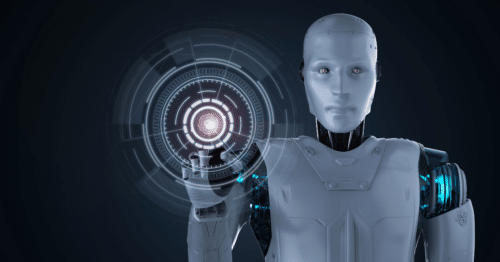In recent years, artificial intelligence (AI) has made waves across multiple industries, and engineering is no exception. The integration of AI into engineering practices, often referred to as “Engineering AI,” is transforming the way projects are conceptualised, designed, and commercialised. From enhancing precision to automating complex processes, AI offers a range of benefits that are shaping the future of engineering.
But how does AI make its way from an initial concept to full commercialisation in the engineering world? Let’s explore this evolution and the impact it has on the industry.
The concept phase is where ideas begin to take shape, and for many, the potential of AI in engineering is a game-changer. AI’s ability to process vast amounts of data and learn from it has introduced new possibilities in terms of design, material selection, and project forecasting.
In traditional engineering, design processes can be time-consuming, often relying on multiple iterations and human intuition. With Engineering AI, design processes can now be streamlined using algorithms that analyse previous data, simulate outcomes, and generate optimised designs in a fraction of the time. These AI-driven systems not only cut down project timeframes but also help engineers avoid costly mistakes by identifying potential flaws early in the process.
For example, in civil engineering, AI can evaluate soil conditions, environmental impact, and other factors to recommend the most efficient and sustainable construction methods. The concept of Engineering AI goes beyond mere automation – it enhances decision-making, providing engineers with a toolkit that improves both the speed and accuracy of their designs. In particular, AI can assist in navigating complex building regulations approvals, ensuring designs meet necessary standards from the outset.

Once an AI concept is formulated, the next step is applying it to real-world engineering problems. The development stage is where AI’s true potential is realised, turning theories into practical applications.
One key area where Engineering AI excels is predictive maintenance. In sectors such as construction, manufacturing, and infrastructure, keeping equipment and systems running smoothly is crucial. AI can analyse data from sensors in machinery, predicting when maintenance is needed before breakdowns occur. This predictive capability saves time, reduces costs, and ensures projects stay on track.
Additionally, AI is being used to optimise resource management. By analysing supply chain data, AI can help engineers and project managers ensure materials are sourced efficiently, reducing waste and contributing to more sustainable engineering practices.
Furthermore, Engineering AI plays a crucial role in structural engineering, enhancing the accuracy and efficiency of design processes to deliver safe, optimised structures.
Commercialising Engineering AI involves integrating AI-driven systems into everyday engineering operations. Once the technology has been developed and tested, it can be deployed at scale to improve project outcomes and efficiency across industries.
One of the most exciting aspects of AI in engineering is its ability to foster collaboration. AI-powered design platforms, for instance, allow engineers, architects, and project managers to collaborate in real-time, even from different locations. This seamless integration of data and communication can lead to better-coordinated efforts, minimising the risk of errors and ensuring that projects are delivered on time and within budget.
Furthermore, Engineering AI is playing a critical role in the advancement of sustainable engineering practices. By leveraging AI-driven models that predict the environmental impact of projects, engineers can make more informed decisions about the materials and methods they use, promoting sustainability without sacrificing performance. AI can also streamline project administration services, allowing teams to stay on schedule and within budget.
Engineering AI is also advancing sustainable architecture by promoting more efficient, eco-friendly designs for the future of construction.

While the commercialisation of Engineering AI is well underway, challenges remain. One of the primary concerns is the ethical use of AI. As AI systems become more autonomous, ensuring they are used responsibly is crucial. There’s also the matter of data security, as Engineering AI relies heavily on vast datasets, some of which can be sensitive in nature.
Despite these challenges, the future of Engineering AI is bright. The technology is continuously evolving, with more advanced AI tools being developed to solve complex engineering problems. As AI becomes more accessible, smaller firms may also begin to adopt these technologies, democratising innovation across the industry.
Looking ahead, AI will likely play a significant role in pushing the boundaries of what is possible in engineering. From intelligent design systems to AI-driven construction methods, the journey from concept to commercialisation is just the beginning. Engineering AI is poised to redefine how we approach the built environment, making it smarter, more efficient, and more sustainable.
AI is no longer a distant concept within engineering circles—it’s a reality. As the journey from concept to commercialisation of Engineering AI unfolds, the technology is set to revolutionise the field. By enhancing design processes, optimising resource management, and promoting sustainability, Engineering AI offers countless benefits to engineers and society alike.
At Western Building Consultants, we’re excited to be part of this revolution, leveraging the latest advancements in Engineering AI to deliver innovative solutions for our clients. Whether you’re planning a new build or looking to optimise existing structures, AI is a tool that will continue to shape the future of engineering.
Interested in learning how we can bring AI solutions to your next project? Contact us today to discuss your requirements!